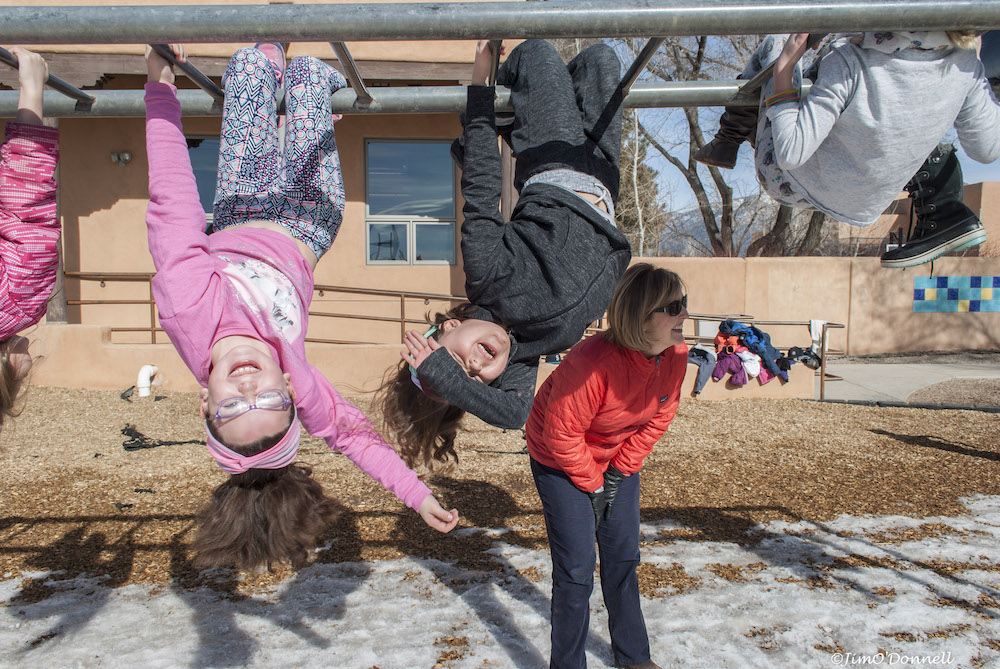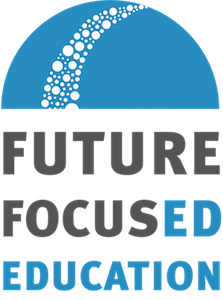Essential For Learning, Essential For Life
How Social and Emotional Learning Can Transform Our Schools and Communities

"I have no doubt that the survival of the human race depends at least as much on the cultivation of social and emotional intelligence, as it does on the development of technical knowledge and skills.” Linda Darling-Hammond, Handbook of Social and Emotional Learning
Late last year, the U.S. Surgeon General announced a youth mental health crisis. The emotional and social skills we need in order to be resilient are suddenly more crucial and elusive than ever.
Over two years of uncertainty, social isolation, online learning, and economic loss have left many students reporting high levels of anxiety, depression, and despair. Educators find themselves ill-equipped to address the magnitude of emotional and social needs, let alone proactively develop and model these essential skills.
The good news is that decades of research indicate that everyone can develop these basic, critical life skills. Like other skills—playing basketball, reading, or cooking—social and emotional skills are teachable, learnable skills that become more permanent and applicable with practice.
Social and emotional skills are the key human capacities that allow individuals to manage their emotions, work with others, and achieve goals. These skills are crucial for the well-being and success of every child and adult, and for the future of our societies and economies.
The field of Social and Emotional Learning (SEL) is emerging as the world’s best and most cost-effective opportunity for education reform that will move learning and societies away from the cookie-cutter, factory worker, widget-producing model towards a humanistic model in which the full potential of each student is nurtured and realized, contributing to the security of a diverse democracy.
SEL Begins with Adults
The high levels of anxiety and depression reported by students are mirrored by reports of similar distress in educators, contributing perhaps to the unprecedented exodus of teachers across the state as teachers burn out in the face of needs they are unprepared and unsupported to address.
Educators themselves need professional settings that model and foster these skills including trustworthy, respectful working relationships with colleagues and inclusive, authentic, supportive work environments.
Teachers can’t teach what they don’t know. In the midst of on-going uncertainty and transition, adults as teachers need to model resilience. They need to have the skills to prioritize their own well-being and self-regulation so that they can reliably create warm and respectful connections with their students and families so that students can, in turn, attend to their learning and growth.
Rigorous research studies show that SEL skill development decreases discipline referrals, increases prosocial behaviors, and improves test scores by 11 to 13 percent on average.
In order to be effectively taught, these inter- and intra-personal skills need to be modeled, taught through direct instruction and frequently practiced across all subject areas and in diverse settings guided by adults with a shared language and understanding of the concepts and goals.
If educators were routinely supported in learning and embodying these skills, they would be better able to model them. They would naturally integrate these skills across the curriculum, providing opportunities to practice and reflect with their students. They would have a shared understanding and language for these skills, outcomes, and impacts. Schools would become a joyful, healthy, vibrant, dynamic nexus of communities where adults and students thrive emotionally, socially, and cognitively.
SEL Models in New Mexico
In early 2020, the New Mexico Public Education Department created the position of Coordinator of Behavioral Health charged with overseeing the full continuum of behavioral health services provided in schools, starting with SEL. This was just before the COVID pandemic demanded school closures. Nascent efforts to provide systematic, universal social and emotional skills development for all students equitably across all schools and districts throughout the state were abruptly interrupted.
Gratefully, prior to the pandemic, some schools had recognized the responsibility and positive impact of building social and emotional skills in all students.
Case Study: Anansi Charter School, Taos NM
Systematically developing emotional intelligence (EQ) skills, starting with the adults in children’s lives, has been the foundation of the Anansi Charter School in Taos since its founding more than 20 years ago. Staff development in emotional intelligence and social and emotional skills is an on-going priority. Over the years myriad aligned SEL curricula have been tools staff use to provide direct instruction. The skills are also integrated, practiced, and modeled across all content areas in interactions with colleagues, students, and families. Staff and parents have developed shared language and shared concepts around foundational emotional and social skills.
“Mood meters” developed by the Center for Emotional Intelligence at Yale University are a standard anchor tool for daily check-ins giving students predictable opportunities to turn their gaze inward, to develop self-knowledge, as well as opportunities to listen actively and empathetically to the experiences of others. Opportunities to make responsible choices guided by an evolving internal sense of compassion and accountability are purposefully woven into every day learning and modeled in conversations and interactions teacher to teacher, teacher to student, student to student, and teacher to families.
Case Study: Reflective Supervision
Reflective supervision is the practice of providing a safe space and time to reflect with guidance on emotional responses and choices in social interactions, as well as time to consider impacts and co-create alternatives. The First Steps Home Visiting program in Taos County works with the families of newborns, helping caregivers develop the inter- and intra-personal skills to be responsive, regulated parents and partners and to thereby model and develop these skills in infants and children.
The home visitors themselves receive reflective supervision in a safe, co-regulated, responsive setting, and have the opportunity to reflect on their own emotions, thoughts, and choices in their interactions with clients.
Professional development in emotional intelligence has been a core component of this home visiting program since its beginning, and the reflective supervision further nurtures the skills to create safety, alignment, and modeling for the employees who in turn interact with families, who in turn interact with infants and children. This creates an entire ecosystem that fosters emotional and social well-being and fortifies practices and skills. [Read the 10-year First Steps Home Visiting Program report]
The SEL Community Catalyst project is a free, six-month training and coaching program in emotional intelligence and social and emotional skills for community members in diverse sectors: from business to government, to education and health care. The program is also incorporating reflective practice into the coaching training. Monthly “knowledge meetings” with the entire cohort of 70 participants share content background and research relative to a core emotional intelligence skill. This skill is then explored and practiced in smaller monthly coaching sessions. The coaches meanwhile have reflective supervision with lead team members, expanding the social and emotional capacity and competence incrementally across the community and building bridges across sectors that are often siloed in their work in community.
The coaches have the opportunity to reflect with their supervisors so they are able to model and nurture these skills in the participants with whom they are working. The participants are then able to bring these same skills and practices to their co-workers and meetings, as well as employee-employer relationships and family members—positively impacting their colleagues and community members.
What’s Next?
Educating educators who were themselves raised, educated, and trained in the old mechanistic model of education presents a challenge. Although many educators were motivated to enter the teaching profession by their desire to nurture whole children, decades of teaching to tests, compliance to mandates, and assessing children by standardized tests have drained the dreams and energy of many educators. It is time to remember these dreams and motivations.
The Aspen Institute stresses the need for cross sector collaboration and support for teachers and communities. “The meaningful and effective cultivation of social, emotional, and cognitive development…comes from prioritizing and building adult capacity to model and teach these skills; and from working across schools and community organizations to align and collaborate for the good of all children.”
What if we explicitly built our own social and emotional capacities, and supported and encouraged these capacities in our students and families? I believe this would reignite the very dreams and motivations that called us into the field of education in the first place. Might the integration of culturally affirming social and emotional learning keep teachers teaching, able to realize the dreams that first motivated them to become educators?
As caring adults, we are helping our children identify and articulate what they are thinking and feeling so they can make choices to do the good for themselves, their friends, families, and communities. Social and emotional learning is essential to realize this dream, restore our collective well-being, and transform our communities.
SEL4NM.org is a group of educators and advocates, registered as an official state affiliate of the national organization, SEL4US.org. We are committed to raising statewide awareness of SEL and its impact, advocating for policies and funding to support universal, culturally affirming SEL and connecting SEL stakeholders across the state to share best practices.
Please join us at SEL4NM.org and help us imagine what our state would look and feel like if, for the next five years, schools, businesses, government, community organizations, and families, fully committed to the development of social-emotional skills.

